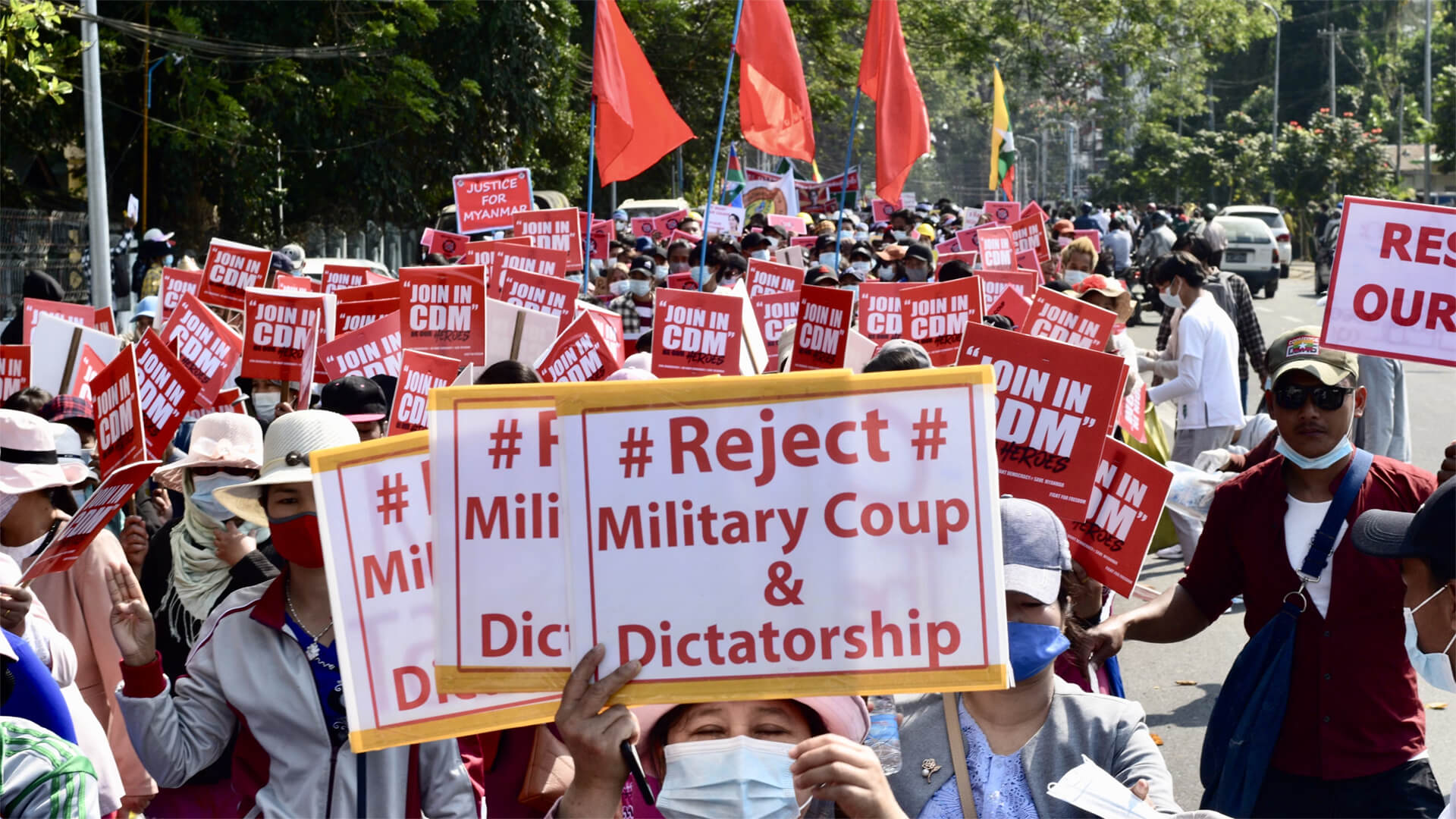Myanmar doesn’t often catch my attention, but with the ongoing civil war, I figured it was time to throw it into the mix. After years of civil unrest, is there a clear path to stability?
A quick look back at Myanmar’s history will show a fractured population divided by demography and ethnic lines. The majority is made up of the Burmese people, which comprises two-thirds of the population. The Burmese live in the most favorable location and have the best infrastructure.
The Burman majority currently also makes up the vast majority of the military, which is the backbone of the ruling junta. In addition to stymying domestic democracy movements and mismanaging the country (and its resources, and its economy), the pro-Burman regime has a long history of abuses against various minority groups. These groups have increased their violent confrontation with the junta in recent years, and the military has struggled to retain control.
So, after 15 years of civil unrest and conflict, can they see the light on the other side? Unfortunately, the future remains bleak until there is some form of political resolution to regain control of the country and the disconnected population.
Here at Zeihan On Geopolitics we select a single charity to sponsor. We have two criteria:
First, we look across the world and use our skill sets to identify where the needs are most acute. Second, we look for an institution with preexisting networks for both materials gathering and aid distribution. That way we know every cent of our donation is not simply going directly to where help is needed most, but our donations serve as a force multiplier for a system already in existence. Then we give what we can.
Today, our chosen charity is a group called Medshare, which provides emergency medical services to communities in need, with a very heavy emphasis on locations facing acute crises. Medshare operates right in the thick of it. Until future notice, every cent we earn from every book we sell in every format through every retailer is going to Medshare’s Ukraine fund.
And then there’s you.
Our newsletters and videologues are not only free, they will always be free. We also will never share your contact information with anyone. All we ask is that if you find one of our releases in any way useful, that you make a donation to Medshare. Over one third of Ukraine’s pre-war population has either been forced from their homes, kidnapped and shipped to Russia, or is trying to survive in occupied lands. This is our way to help who we can. Please, join us.
Transcript
Hey everybody, Peter Zeihan here, coming to you from Colorado. We are in the first full week of August, and today we’re going to talk about a place called Myanmar. We’ve had a lot of military activity there in the region—there’s basically a civil war going on. The rebels have captured a major military facility in one of the regional capitals.
First of all, what is Myanmar? Myanmar is a country that used to be called Burma. It is sandwiched between the Indian subcontinent and Southeast Asia. It’s primarily mountainous, primarily jungle, but cutting through the middle of it is the Irrawaddy River, which is actually a navigable riverway, much like the Mississippi or the Rhine. And so it’s a huge push for commerce right there.
The population, of course, as you would expect from jungles and mountains, is fractured. The core population, the Burman or the Burmese, is based on what your ethnicity is and runs right along the river, right in the lowlands. This is the most economically viable area, where most activity happens, where most agriculture happens. They make up about two-thirds of the population, and they are large and in charge.
They have also had a succession of governments under military and civilian rule that are kind of pricks and treat everyone else as disposable. Before you even consider that mountainous people and jungle-living people are a little ornery, there’s plenty of reason for all the other ethnicities in Myanmar, or Burma, to be at odds with the Burmans. And so we have basically been in an increasing state of civil breakdown, and now civil war, for the last 15 years.
There are over 100 other ethnicities—none of them make up more than 10% of the population—but all of them have their little areas that they’ve carved out, big into smuggling, big into heroin, because these are things that you can do when the center cannot hold. I phrased that wrong. The center can hold—the center can hold the center—but it has a real hard time pushing power into the provinces and the edges, where everybody else is.
The problem is that all the borders are porous, development is limited, and what infrastructure exists is largely limited to the Burman areas in the lowlands around the Irrawaddy. This, unfortunately, is becoming the new state of affairs. The Burmans have mismanaged their affairs under civilian and military rule—it’s currently military rule—to the point that relations with pretty much all of the ethnicities have broken down.
And while there’s a civil war on one hand, there is also, because of military rule, a pro-democracy push across the country that is weakening the government from within. So if the center holds but nothing else, you’re basically looking at this giant U of territory in the northwest and east becoming stateless in the traditional sense. This is how it’s going to remain until such time as someone is able to consolidate power.
That could be a change of government among the Burmans, who could maybe do some sort of national reconciliation. But I don’t see anyone alive in the political system right now who is capable of that. Or it could be a third party coming in and knocking some heads together. The only country in the region that has that capacity would be China. And while the Chinese are okay with Myanmar being weak, they are not okay with being the power that has to come in and take over the security situation, because it would be just as hard for them as it has been for the Burmans.
So unfortunately, despite a reasonably favorable geography in the core, this is a country whose time has not yet come and will not until we can have some sort of political resolution, which does not, unfortunately, appear to be on the horizon. All right, that’s it. Bye.





